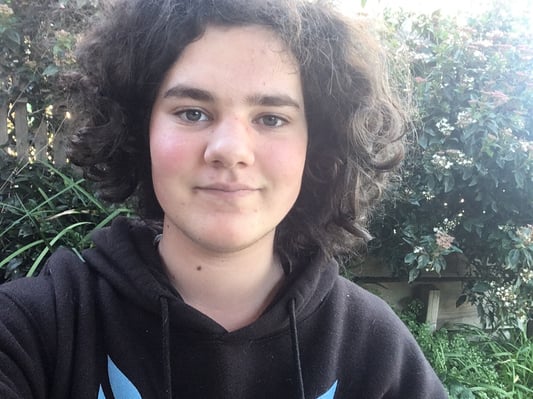At Write the World, we firmly believe that no matter how much you plan and outline a piece, you don’t truly know what you want to say or how to say it until you start putting the words down on the page. Science Fiction Competition winner Zara Vale (Australia) perfectly illustrates our point: his impressive use of second-person narration in his prize-winning piece was discovered through the writing process. “I started writing the piece once I had a concept for the overall story,” he explains, “but I had to keep hitting backspace because something didn’t feel right … I thought that second person would be fun to experiment with.”
We talk to Zara about the inspiration for his piece, his tips for worldbuilding within a word limit, and his writing goals for the rest of the year!

Guest Judge Amie Kaufman praised your piece for its “fantastic premise and a fresh take.” Where did your inspiration for this piece come from?
I was inspired by the idea of significant gain after tragic loss. For those aboard the spacecraft, Earth is no longer a viable option to live on. Humanity has lost their home and security of familiarity, and the flower is a symbol of new life and hope for them as they travel towards an uncertain future in a foreign environment.
Amie also praised your use of second person; what drew you to using it over the more common first or third person?
I started writing the piece once I had a concept for the overall story, but I had to keep hitting backspace because something didn’t feel right. I wanted to change up the techniques a bit, and as I was going for a story that’s based on mystique building to a big reveal, I thought that second person would be fun to experiment with as it gets the reader even further into the headspace of how such a scenario might make them feel. I was also drawn to using second person as I have only really come across the technique in choose-your-own-adventure books, and I thought that it might add some of the adventure that those stories have.
How did you manage to both create a satisfying narrative and build a world within 1,000 words?
Often when I write I get a bit antsy about the details—what year is it, why exactly are we leaving Earth, what happens after the flower is discovered, what happens when it’s revealed to the ship at large, and so on, were the sort of things I was worried about when I started writing this. I found that letting that small, punching part of the story breathe and not fog the narrative with details was the key to keeping the story within the word limit.
What are your writing goals for the rest of 2021?
Wow, big question! I’ve been thinking of publishing a small local zine in my nearby city area which would be really fun, but it feels a bit ambitious. There are a couple of local competitions that I’d really love to enter so I guess I’ll see how that goes first!





